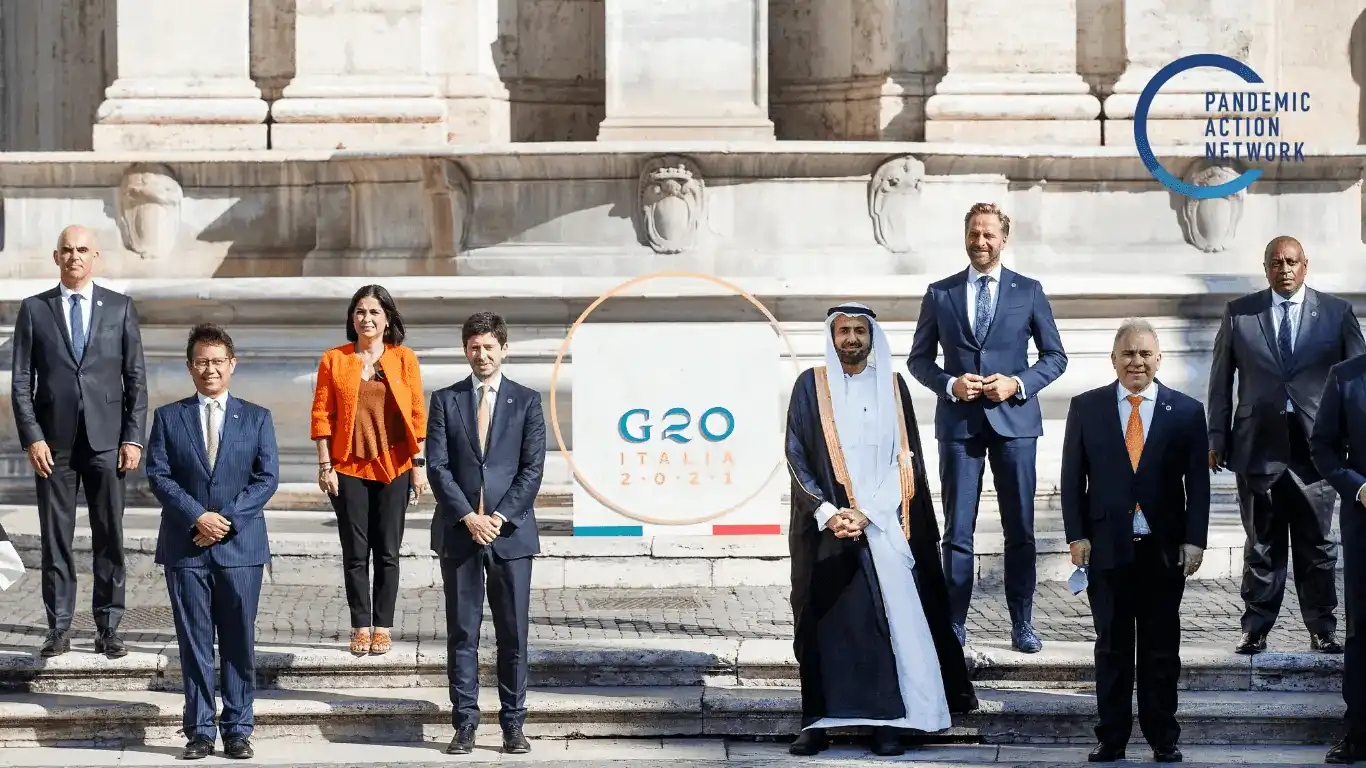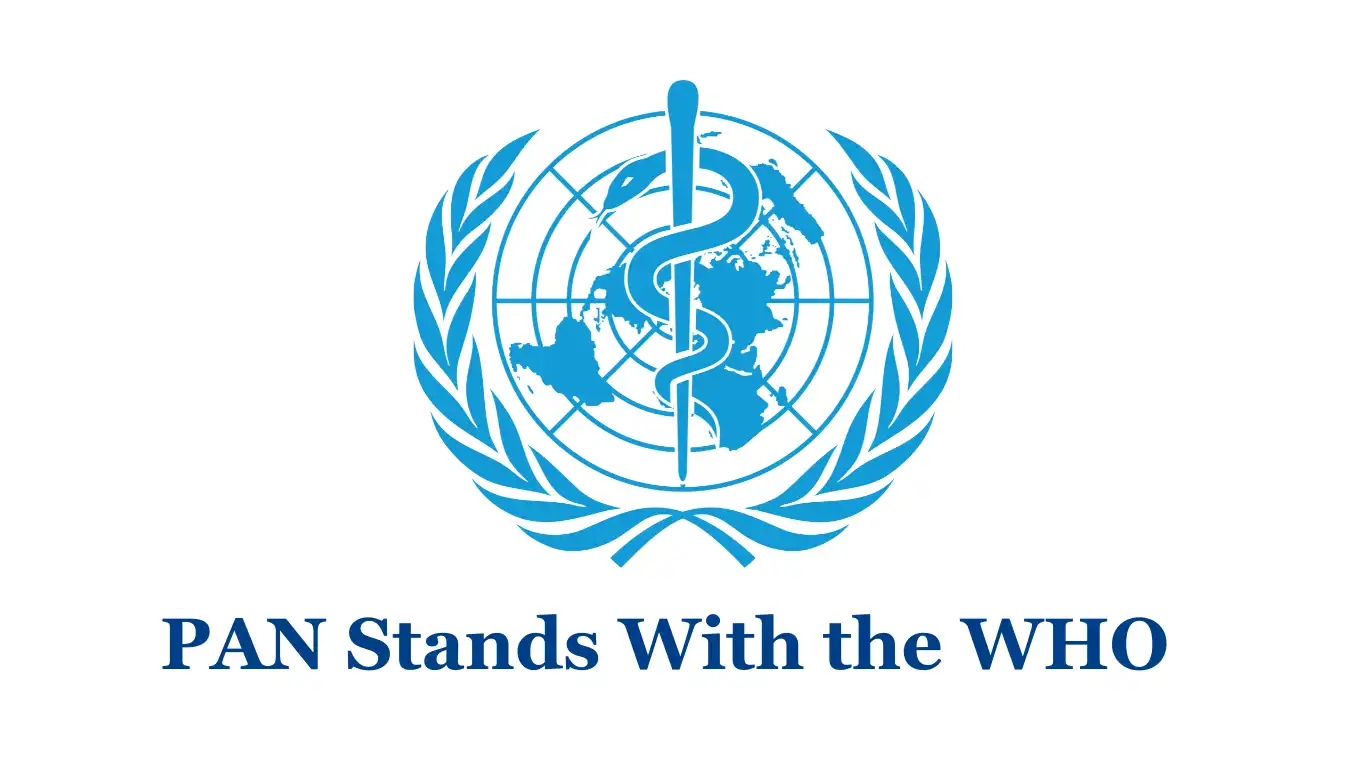DESPITE PROMISING STATEMENTS OF COOPERATION, VERY LITTLE WAS AGREED UPON DURING THE G20 HEALTH MINISTERS’ MEETING AND WHAT COMES NEXT TO TURN COMMITMENTS INTO ACTION REMAINS UNCLEAR.
In advance of the two-day gathering of Health Ministers from the Group of Twenty (G20) in Rome, Italy’s health minister Roberto Speranza, holding the G20 presidency this year, said the event was an occasion to strengthen international relations and work for fairer COVID-19 vaccine distribution.
While the G20 Health Ministers’ declaration contains encouraging messages of strong multilateral cooperation to end the pandemic and enhance timely, equitable, and global access to safe, affordable, and effective COVID-19 vaccines, therapeutics and diagnostics, very little was agreed in terms of concrete steps needed to turn these promises into a reality.
Here are some of our main take-aways:
“Pact” on achieving vaccine equity
Countries committed themselves in the so-called “Rome Pact” to providing the entire world population with access to COVID-19 vaccines. Speaking after the meeting, Italian Health Minister Speranza told journalists, “if we leave part of the world without vaccines, we risk new variants which will hurt all of us.” He promised that efforts would be strengthened bilaterally and through international platforms starting from COVAX.
We welcome the Ministers’ commitment to continue their efforts to meet the World Health Organization’s (WHO) goal to vaccinate at least 40% of the world’s population by the end of 2021 and continue to support collaborative initiatives, such as the Access to COVID-19 Tools Accelerator (ACT-A) and COVAX as well as important global research and innovation initiatives as the Coalition for Epidemic Preparedness Innovations (CEPI). We still have a long way to go — the WHO Director-General has said that while 5 billion vaccines have been administered worldwide, almost 75 percent of these doses have been administered in just 10 countries.
Most high-income countries have bought significantly more doses than needed to cover domestic vaccination needs. We need these countries to donate at least 1 billion vaccine doses as soon as possible, and 2 billion doses by the end of 2021, if this goal is to be achieved. We welcome Germany’s announcement on the sidelines of the meeting to make 100 million vaccine doses available for the international inoculation campaign before the end of the year, and call on others to swiftly follow suit.
Financing for pandemic preparedness and response
According to the Health Ministers’ declaration, proposals on sustainable financing to strengthen future pandemic preparedness and response are being drafted to be presented at the G20 Joint Finance and Health Ministers’ meeting in October. Immediate and multi-year funding commitments for the pandemic response in low- and middle-income countries (LMICs) must match the scope and urgency of the need. We must urgently establish a financing mechanism to channel and direct the additional funding required for the current pandemic response to where it is most needed, and to jumpstart funding for preparedness for emerging pandemic threats. Read more on the call for a new global financing mechanism that provides robust and sustained investments in pandemic prevention, preparedness, and response in this policy brief.
One Health approach
On a positive note, there was agreement on adopting a ‘One Health’ approach in responding to future health emergencies, i.e., recognizing that human, animal, and environmental health are interlinked and determinant of our wellbeing. According to the Ministers’ declaration, the WHO, World Organisation for Animal Health (OIE), Food and Agriculture Organization (FAO), and UN Environment Programme (UNEP) are to work on a joint work plan on ‘One Health’ to improve prevention, monitoring, detection, control, and containment of zoonotic disease outbreaks.
Vaccine education
There is an abundance of great research, information, and approaches to vaccine education, yet efforts to address vaccine hesitancy and build vaccine confidence can be fragmented and siloed. Catalyzing vaccine confidence requires action across the world by diverse stakeholders, active inclusion, and feedback loops with local implementers. Therefore we welcome the ministerial declaration’s emphasis on the need to promote vaccine confidence “by implementing the most effective, culturally appropriate, and science-based public communication and listening strategies tailored to the context of communities at the local level, to combating misinformation and disinformation, and instilling trust in public institutions and experts.”
Implications for the G20 Leaders’ Summit
The G20 Health Ministers’ meeting was one of the last G20 ministerial gatherings before the Leaders’ Summit in Rome on 30 and 31 October. We urgently need strengthened global leadership and accountability; and expect the next joint Health and Finance ministerial and the G20 Leaders’ Summit at the end of October to produce solid commitments on the following issues:
- Building strong political leadership for the global COVID-19 response by setting out a fully-costed Global COVID-19 Response Roadmap with specific time-bound commitments to help drive us to the end of the pandemic — full details are defined in our Framework for a Global Action Plan for COVID-19 Response;
- Sharing doses at scale and donating entire production slots where feasible, to accelerate global immunity, starting with the donation of excess doses as soon as possible;
- Delivering meaningful finance at scale to tackle the global pandemic, including looking to free up as much as possible of the IMF’s US$650B in Special Drawing Rights (SDRs) to low-income countries and to contribute to funding the global COVID-19 response.
We wholeheartedly agree with Minister Speranza when he calls the vaccine a ‘key to freedom’. But we urgently need leaders to focus on ensuring that this ‘key’ is accessible to everyone, not only those in G20 countries.



